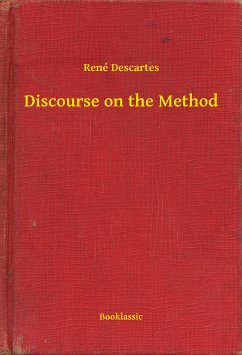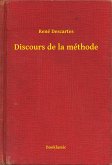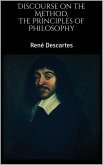The Discourse on the Method is one of the most influential works in the history of modern science. It is a method which gives a solid platform from which all modern natural sciences could evolve. In this work, Descartes tackles the problem of skepticism which had been revived from the ancients such as Sextus Empiricus by authors such as Al-Ghazali and Michel de Montaigne. Descartes modified it to account for a truth that he found to be incontrovertible. Descartes started his line of reasoning by doubting everything, so as to assess the world from a fresh perspective, clear of any preconceived notions.
The book was originally published in Leiden in French, together with his works "Dioptrique, Météores et Géométrie". Later, it was translated into Latin and published in 1656 in Amsterdam.
Together with Meditations on First Philosophy (Meditationes de Prima Philosophia), Principles of Philosophy (Principia philosophiae) and Rules for the Direction of the Mind (Regulae ad directionem ingenii), it forms the base of the Epistemology known as Cartesianism.
Dieser Download kann aus rechtlichen Gründen nur mit Rechnungsadresse in A, B, BG, CY, CZ, D, DK, EW, E, FIN, F, GR, H, IRL, I, LT, L, LR, M, NL, PL, P, R, S, SLO, SK ausgeliefert werden.









